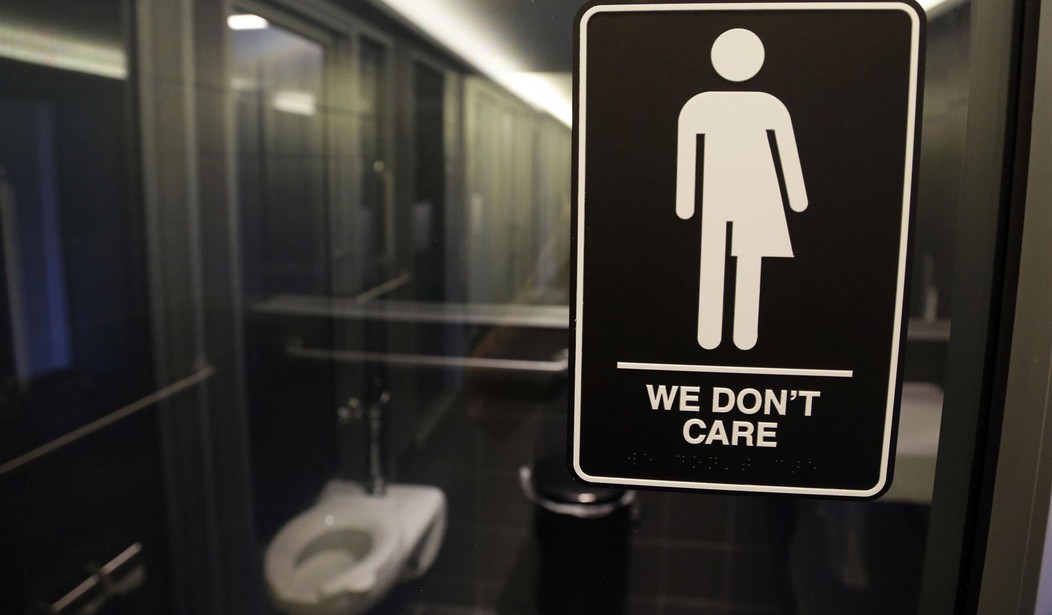You’d be forgiven for thinking that we’ve already got enough on our plates between the plague, the border crisis, Afghanistan, and a possible, looming government shutdown. But in spite of all that, the debate over transgender pronouns and bathroom access is still taking place in the nation’s courts. The latest round is coming from Texas, where Attorney General Ken Paxton is taking the Biden administration to court over an advisory issued by the Equal Opportunity Employment Commission regarding transgender policies in the workplace. These rules would apply to both government offices and private businesses. They require offices to allow transgender workers to use the bathroom of their choice and threaten employers with fines or lawsuits for failing to use the employee’s chosen pronouns. These sweeping guidelines, issued in support of executive orders previously issued by Joe Biden, are all based on a single Supreme Court ruling. Texas argues that the ruling in question was tailored in a very narrow fashion and the guidelines reach far beyond what the court actually said. (Free Beacon)
Texas is suing the Biden administration to invalidate a federal civil rights directive on pronoun usage and bathroom access in the workplace.
The challenge is to an Equal Employment Opportunity Commission advisory that says employers must let LGBT workers access the bathrooms of their choice. The EEOC warned in the same advisory that failure to use a worker’s preferred pronouns could amount to unlawful harassment. The document is based on the Supreme Court’s landmark gay rights decision, Bostock v. Clayton County.
In Bostock, the Supreme Court said it is illegal under federal law to fire someone for being gay or transgender. President Joe Biden signed an executive order committing to a whole-of-government implementation of the Bostock decision on his first day in office.
This guidance from the EEOC bases itself almost entirely on the case of Bostock v. Clayton County, decided in June of 2020. In that case, Clayton County, Georgia fired Gerald Bostock shortly after he began playing in a gay recreational softball league. The court determined that an employer who fires an individual merely for being gay or transgender violates Title VII. Pp. 4–33. That’s certainly fair enough, particularly when the only “gay activity” being noted involves a softball game not taking place on office property and not being organized by the office.
But at the same time, when writing the decision in Bostock, the court figuratively bent over backward to say that it was only ruling on whether or not an employee could be terminated “on the basis of sex.” (Though they muddied the waters by saying that “sex” would apply to a worker on the basis of being gay or transgender when the original 1964 law specifically meant biological sex.) The court wrote that it was not broaching any disputes involving “sex-segregated bathrooms, locker rooms, and dress codes.” The ruling never mentioned pronouns in any fashion.
This new guidance goes well beyond what the court found in the Bostock case. The majority opinion declared that they were leaving all of those questions for another day. “None of these other laws are before us; we have not had the benefit of adversarial testing about the meaning of their terms, and we do not prejudge any such question today.”
I’ve long since given up hope for any sort of sanity out of the courts on the bathroom issue. The only viable solution in the current social climate is to do what many schools and offices have already done and convert their facilities to single-occupant restrooms with no gender identification on them. That doesn’t really satisfy the transgender activists, of course, because this was never really about allowing people to “use the facilities that match your gender.” It was about allowing people to force themselves into bathrooms where they don’t belong to make a point.
The pronoun issue is something else entirely. I don’t believe that an employer (or anyone else) should be able to force someone to speak of themselves using the pronouns of their actual sex if they “identify” as something else. Call yourself whatever you like. It’s still a (mostly) free country. But when you try to mandate the use of those pronouns on others then you are, as some courts have already determined, crossing the line into territory where you are “unconstitutionally compelling and restraining speech.”
We’ll see how this plays out in the courts and how well Texas fares. This is mostly the same set of justices that decided Bostock (minus ACB), so they should either side with Texas or take the time to address those other factors mentioned above that they previously left for another day. If that day is now on the way, we could be in for some fireworks and a very historic decision.








Join the conversation as a VIP Member